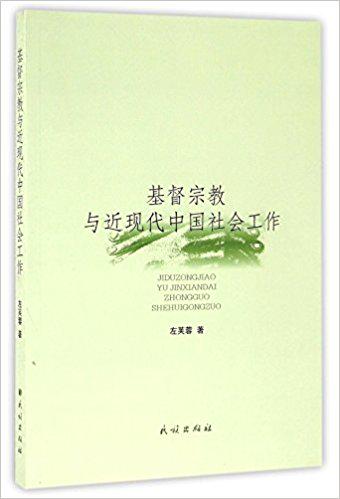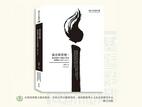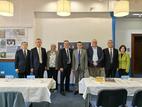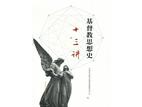"Christianity and the Chinese Social work", by Zuo Fu-Rong, showed the great and even dominant role played by Christianity in modern Chinese society. The book lists in details the contribution of Christianity in China's education, medical care, disaster relief, social work and so on, by a comprehensive account of the work and social impact of the missionaries.
The yeas of AD 169 and 260 can be said to be dark years in the history of the Roman Empire because of two plagues which ruthlessly attacked the Roman Empire. The first plague, which first attacked the expeditionary army, and then attacked the city, caused the death of up to 5000 people per day at worst. More frightening than the plague was the evil heart. Once a person got infected with the plague, even if he did not die immediately, he would be abandoned by his family and neighbors.
At the same time, very few social institutions could play a positive role in this crisis apart from the Christian Church. Christianity became the only sanctuary of the time for any victims of plague abandoned by their family, both poor and rich, known and unknown. What the Christian Church did had such a huge impact on the society that the Roman emperor Julian personally launched a charity in order to exceed the influence of Christianity and win back people's heart.
In the letter to the pagan high priest, the emperor had to say that the pagans needed to catch up with Christians in virtue, because Christians cared for people regardless of color and gender. No historical record shows that the emperor had succeeded in his attempt to exceed Christian church.
China's history witnessed many challenges and disasters such as floods and drought especially in the Huaihe River Basin, although we rarely have a national plague. Our history accompanied by fear and death caused by disasters made us put our own security first in our character, similar to what pagans did in the face of crisis, preserving their strength of force to ensure their own survival. So in crisis brought about by disasters, we are individually fighting though we have blood institutions which may have served us only in the time of peace but is weak and lax in the time of disaster. Adding the fact that our medical science is at the early stage, people face death when simple illness strike them not mention the threat of plagues.
From 1930 to 1932, China's various rivers were struck by severe huge floods which affected 70 million people and brought about more than 1 million people's death (page 84). Faced with such great disasters, the Christian Church actively collected relief supplies and provided temporary shelters for displaces victims along with food and clothing, which reminds us of the 5000 people following Jesus who were fed by 5 loaves of bread and 2 small fish.
At the same time, seeing the huge financial burden of peasants placed by the warlords in that era of political change, social unrest, frequent wars, Christian missionaries began to pay attention to them and agriculture in the early 20th century. The husband of Pearl of the pearl was an expert in agriculture and he served as a professor in Jinling University afterward teaching farmers in Anhui Province to improve the farming quality of land, and introducing fine corn. At that time the church founded schools to train farmers in new technology. The church also paid attention to the development of the countryside.
Since Morrison launched the first clinic in Macau, Christian missionaries have opened up numerous clinics and hospitals. At the beginning, people feared going to these hospitals but when they saw the missionaries from USA and England were ordinary people like them with love for their children, they began to go into these hospitals to see doctors. Most of these hospitals were free of charge or charged patients a little bit so that the poor could afford to see a doctor.
In addition, Christianity has also made a great contribution to China's educational cause in building many key universities. Many famous hospitals were turned from a hospital built by the church and many good universities were originally built by the church as well. Just as the building of hospitals by the church helped China build her own hospitals, so the schools built by them facilitated the appearance and development of China's educational cause.
It is fitting to say that the modern China affected by the West is Christian China for the impact of Western civilization was brought in by Missionaries. Though their activities failed to make an impact everywhere, most of the leading figures in modern China's reforms including Li Dazhao who read the bible through in prison and Jiangqing who had taught in A Christian night school. The missionaries did not only build universities but also conducted researches into the society. It turned out to be the institution that knew China more than anyone else. It is because of these genius coming out of these universities that China' reform was made possible. The impact of missionaries on the modern China can be felt even today.
Jesus meant it when he said that the blind see and the captives set free nor did he refer only to the spiritual. Facing 5000 in hunger, Jesus fed them with bread and fish though some people in the crowd did not believe in Jesus. Similarly, Jesus taught the parable of a good Samaritan. In the parable, the priest and scribes who were supposed to be at the closest distance from God did not care for a dying man they saw but a Samaritan despised by Jews showed true love for the man.Just as the emperor Julian worried about his reign due to the huge impact of Christianity, the landlords of China stirred up the crowd who did not understand the truth to avoid missionaries and even persecuted the church. However, the missionaries holding on to the teaching of Jesus did not give upon doing the good work like the Samaritan. They showed the true and living life of Christ in them.
About the book: "Christianity and Chinese social work", by Zuo Furong
Nationalities Publishing House (January 1, 2016) Beijing (available on Amazon.com)
Zuo Fu-Rong is a columnist to CCD, find more about her books Here.
Translated by Alvin Zhou










